French Open Women's Singles Final Preview: Saba's Abyssal Fire and Gauff's Stillwater Zen
It is said that once upon a time, a tiger met a hedgehog when foraging for food, and the tiger wanted to catch it, but because of its thorns, it was curled nose, and the tiger was frightened and fled back to the mountains in a hurry. One day, the tiger went down the mountain again, and saw the acorn under the oak tree, because it had thorns, so it was mistaken for the son of a hedgehog, so he hurriedly avoided it, and begged for mercy: "I just passed by and did not expect to bump into you, and please let me pass!" ”
Everyone laughed at it. People said, "Although the hedgehog is good, it is not as good as the tiger's teeth, if you bite it fiercely, it is only once, and the meat can be enjoyed." Therefore, everyone in the world says that although the tiger has eyes but no beads, it is said that the acorn is a virtuous person, but it is ridiculous to come and see it. ”
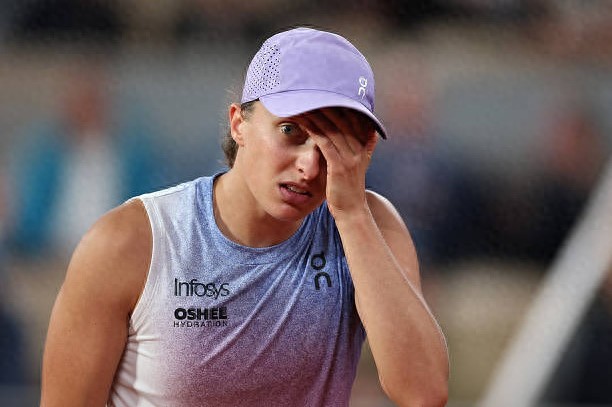
I always think that the world is stupid, with eyes but no beads, and mistakes hedgehogs for virtue, however, many people ignore the impact of psychological effects on human behavior. Like Swiatek last night, no one could have known what she was thinking before the deciding set began, no one could feel the pressure of four French Open titles and a 26-game winning streak at the French Open, and the psychological struggle of desperate desire to win and extreme fear of losing.
Returning to the first set, Sabalenka repeatedly tore through her opponent's defense with her serve of more than 190 kilometers per hour in what was considered a close matchup before the match, and now she is no longer looking for the ultimate "perfect shot", but instead uses a variety of attacks and sudden forehand strikes to tear apart her opponent's defense on the baseline. It's as the fable goes: if the shadow can turn into a spike and pierce the tip of her nose, then when she chooses to bite instead of retreating, she will become the new king of clay.
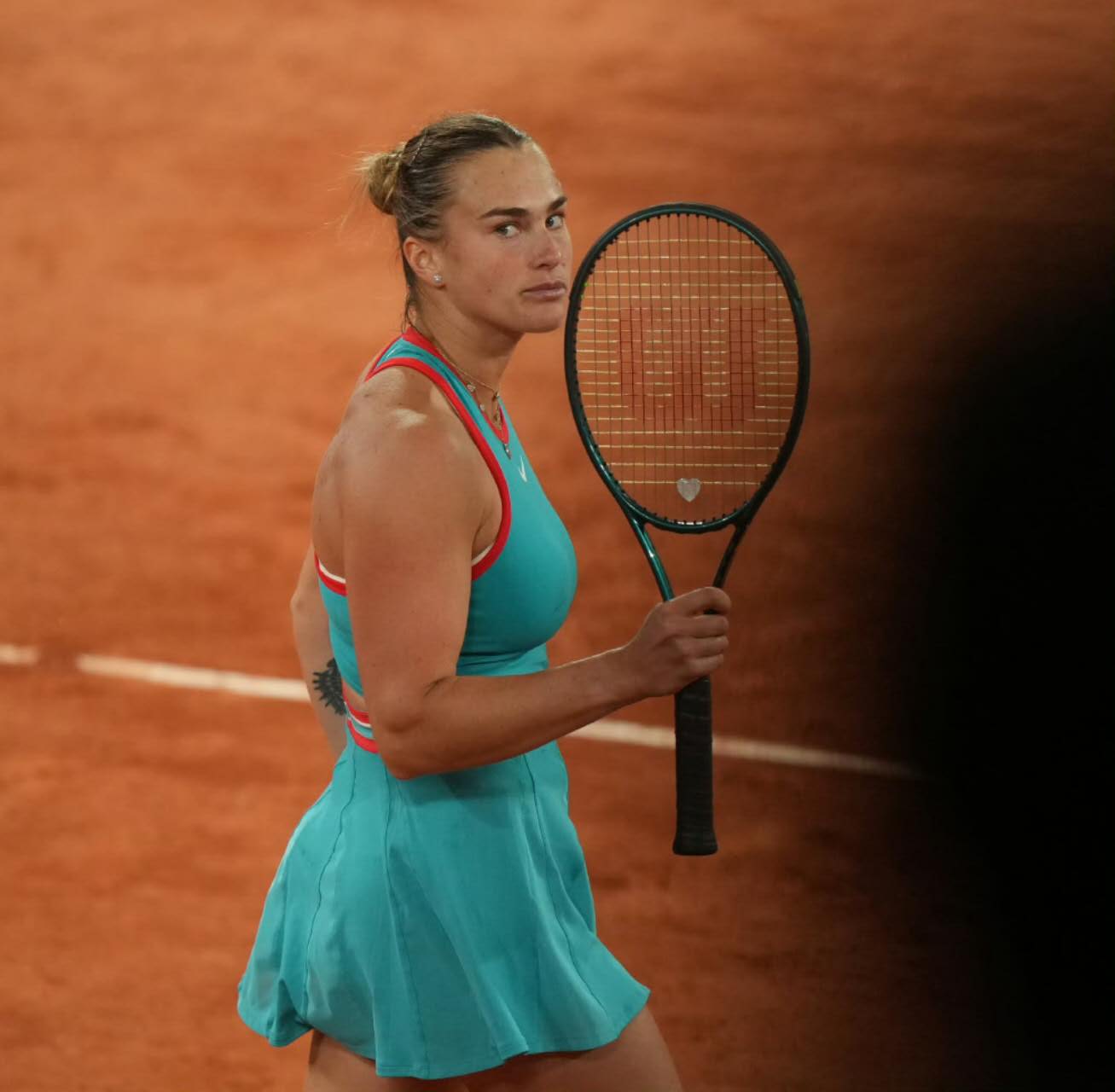
Looking at yesterday's Gauff, I also have a fable to tell you here. It is said that there was a poor man who had only enough money to buy an urn, so he bought it, and when he saw it, he was glad to see it, and for fear that it would be stolen, he slept in the urn all night. In the middle of the night, the poor man thought, "This urn is excellent, and it can be sold for a few, and the interest of the two can be doubled." And if you get double the interest, you can sell two urns. If this is the case, if you turn from two urns to four, and you get double the interest, will not the benefits be endless? Thinking about it, he danced with his hands, but before he knew it, the urn was trampled on.
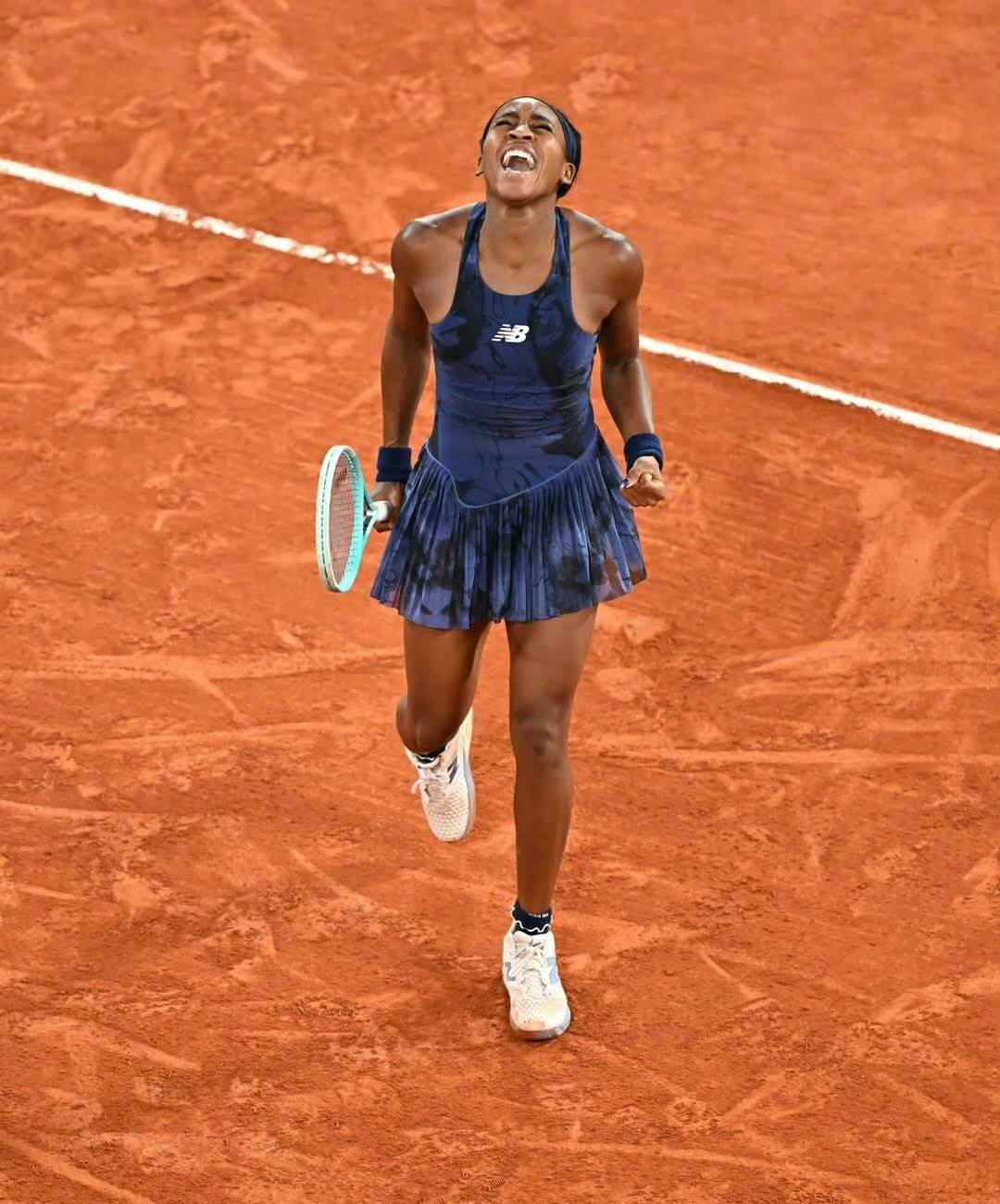
The French underdog Boisson, who lost in the semi-finals, was clearly not satisfied with the result, and the Frenchwoman said after the match that she had higher expectations than in the semi-finals, but she was disappointed by her performance. I think it's obvious that at this stage, everybody has an idea, but that idea in your head can be stressful and eventually even confusing on the field.
Compared with Boisson, Gauff showed superhuman calmness and calmness, facing the cheering of the tsunami at home, Gauff weaved a net for his opponent with a 78% first-serve success rate and a pressing landing point in the deep backhand area, and only lost three games in two sets.
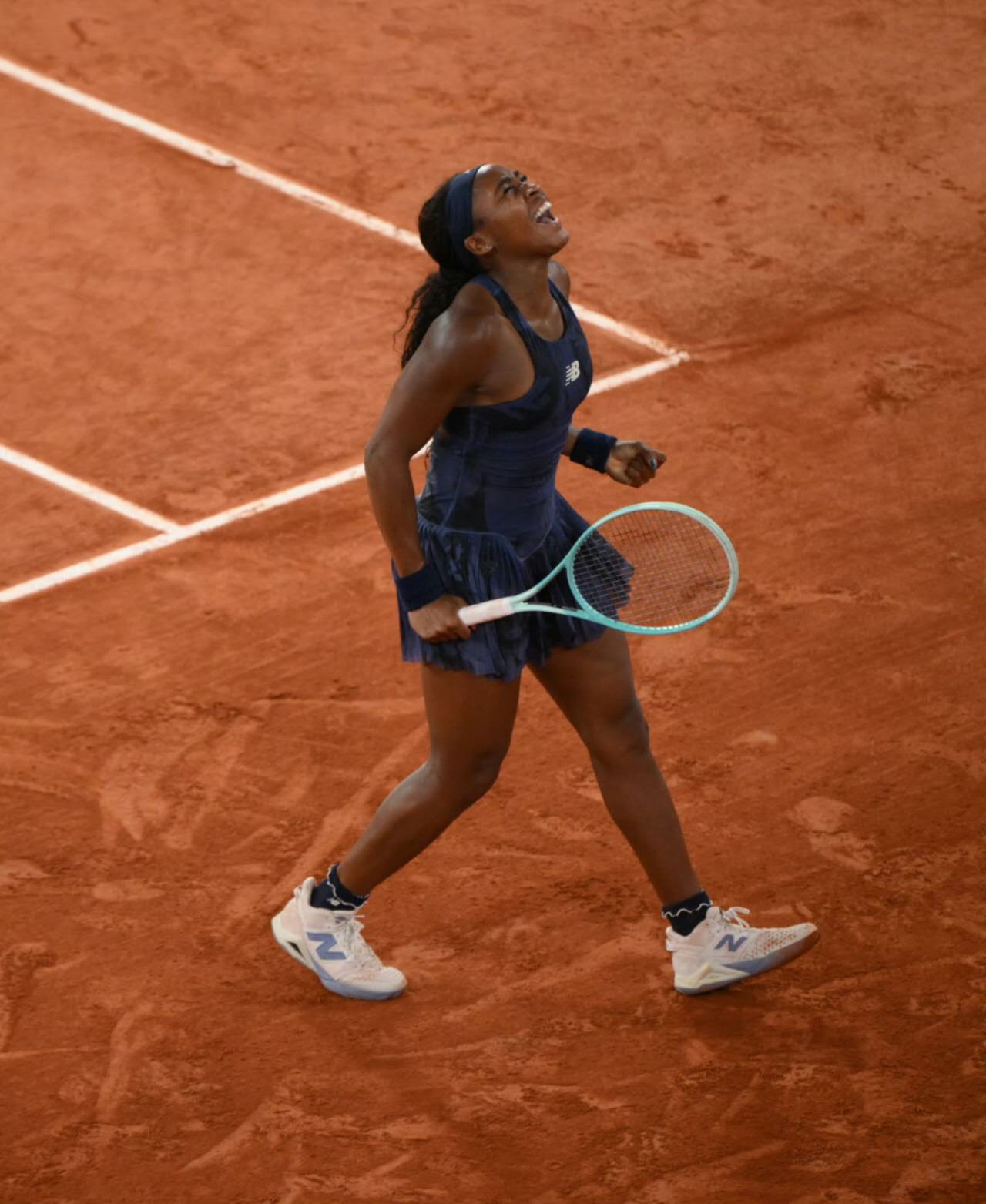
I think Gauff is probably scarier now than she was when she won the US Open three years ago, because she is so much stronger mentally than she was then. In this women's singles semi-final, Boisson was not without chances, but every time he reached the key point, Gauff's calm and decisive handling would make his opponent fall. Gauff's composure in the quarter-finals and semi-finals is exactly as described in "Archery and Zen Mind", the meditation of "the goal and the target are one". Therefore, while Boisson fell into the trap of adventure again and again like an "orangutan clog", Gauff had fallen into the realm of "reason is silent, instinct is rushing", and he does not move, leaving you to flow.
I often think that if Boisson is the seeker of "carving a boat for a sword", then Gauff should be the wise man who contemplates the flowing water—the ball is like a boat's marks, reflecting the truth with an empty heart.
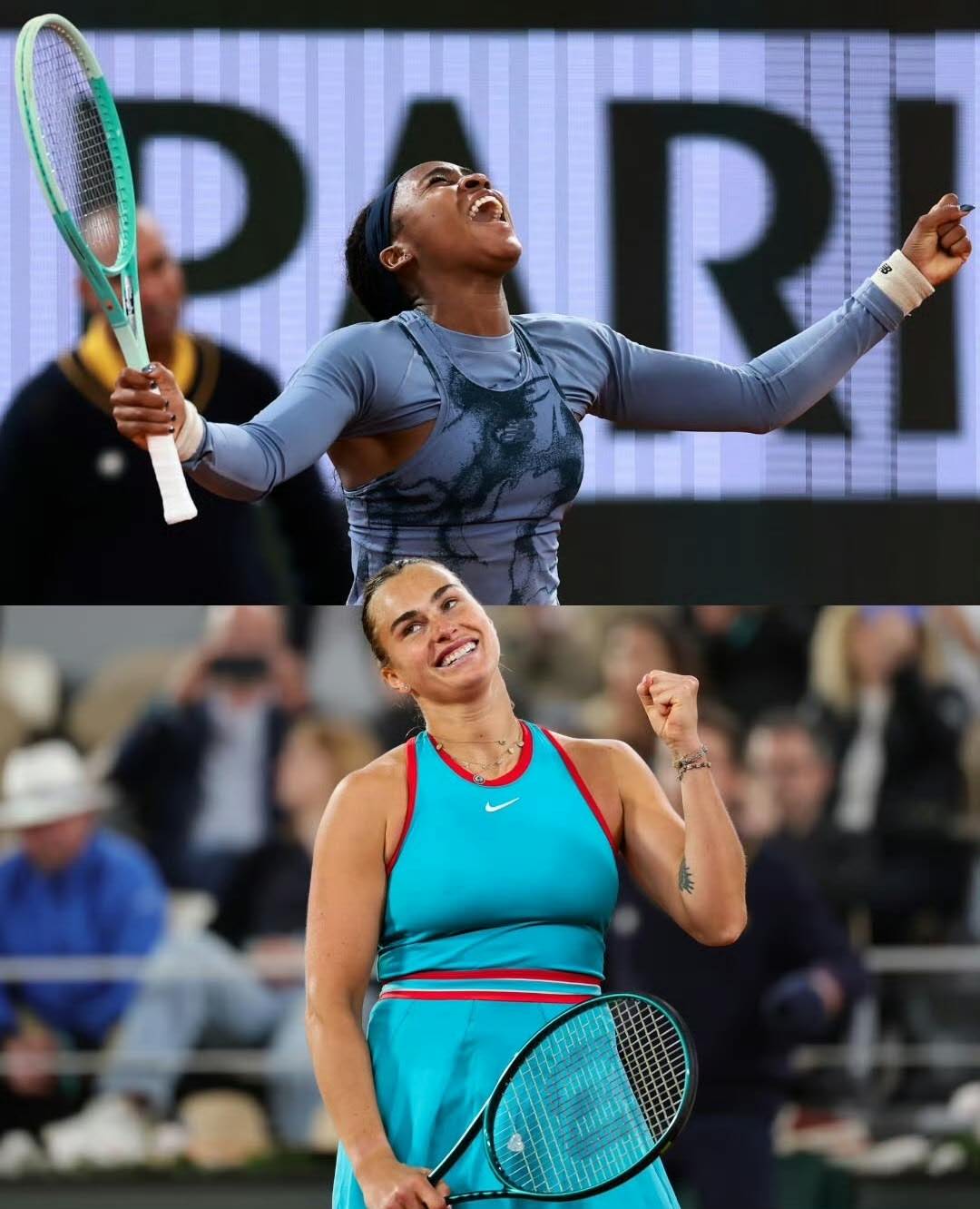
I think this Women's Singles final is going to be very interesting, with two players attacking and defending, one good and one evil, just like the two extremes of tennis: Sabalenka's destructive aesthetic, which turns violence into the killing instinct of a warrior's will; Gauff, on the other hand, is more like a Zen priest who does nothing - he does not deliberately attack and defend, but takes advantage of the situation to meet the way of heaven. Josa Balenka is a giant axe that splits mountains, and Gauff is a stream that winds around stones, where the oriental wisdom of softness and rigidity is revealed.
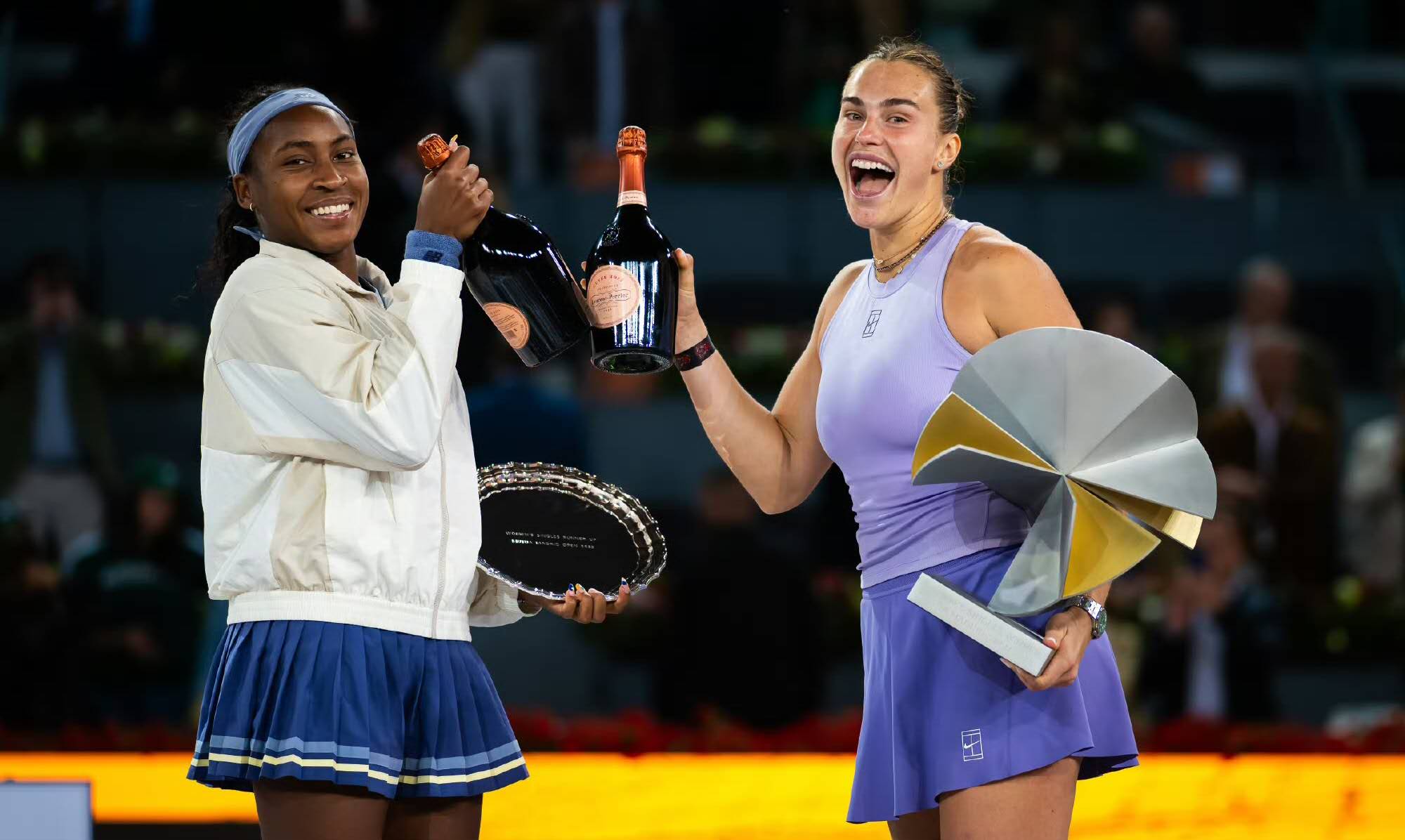
The two had a meeting in Madrid this year, when Sabalenka easily defeated Gauff with net and small-ball tactics, which was more like a "field horse race", and it was obvious that Sabalenka avoided Gauff's good bottom line maneuvering, such as "inferior horses attacking superior horses", and cracked Gauff's bottom line copper wall. However, on the slow court of the French Open, the slow pace is more conducive to Gauff's defensive transformation, which is like "superior horse against inferior horse", Sabalenka's second serve will become her weakness, and her point attack on the baseline will be greatly reduced. However, the slow course also gave Sabalenka more time to lead the shot, which is also more like a constant transformation of contradictions.
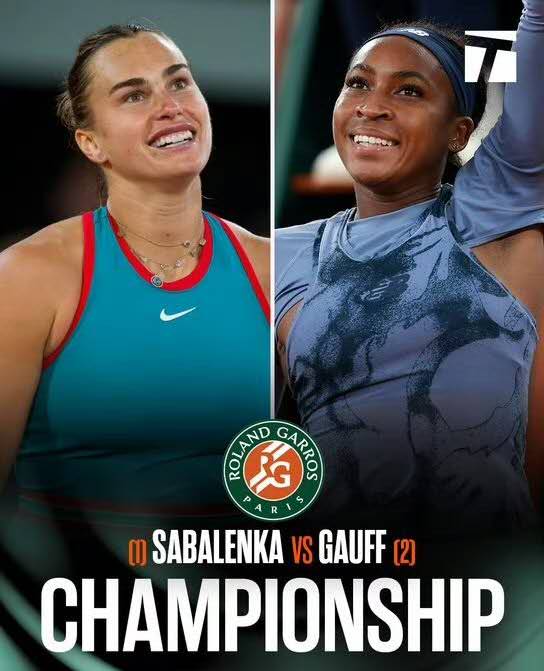
There is a sentence in "Archery and Zen Heart" that I like very much, "The tension of the bow often needs to be loosened and tightened before the middle way can be found." "People are often contradictory, wanting to control and insure, but afraid that the effort is not proportional to the effort; want to win, but are afraid of losing; I want to be a little Buddha, but I can't escape the fight. Therefore, the key to this women's singles final is the "choice", especially the choice of some key scores, just like the tension of the bowstring, it can be tightened to understand the art of non-art.
No matter who the champion is, this duel is a classic, it will inspire many people, and it will also be remembered by time, tennis is like flowing water, the traces of victory and defeat will eventually be erased by time, only the Zen afterglow of the bowstring trembling will always be in people's hearts. All this, as Susan Lange puts it, "becomes 'the symbolic form of human emotion', a poetic transcendence of fate in every toss and swing." ”(Source: Tennis Home Author: Lu Xiaotian)







 Links
Links
 Contact
Contact
 App
App


